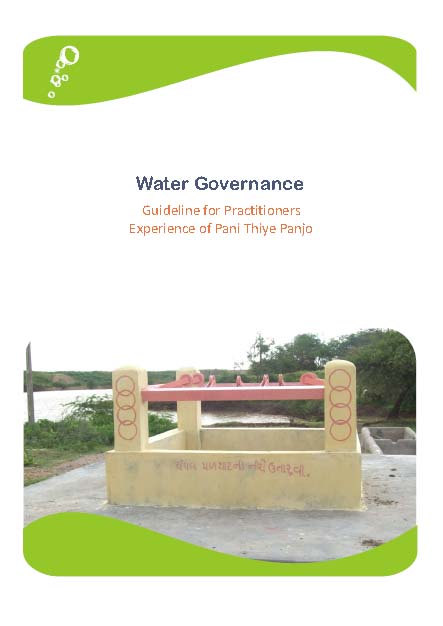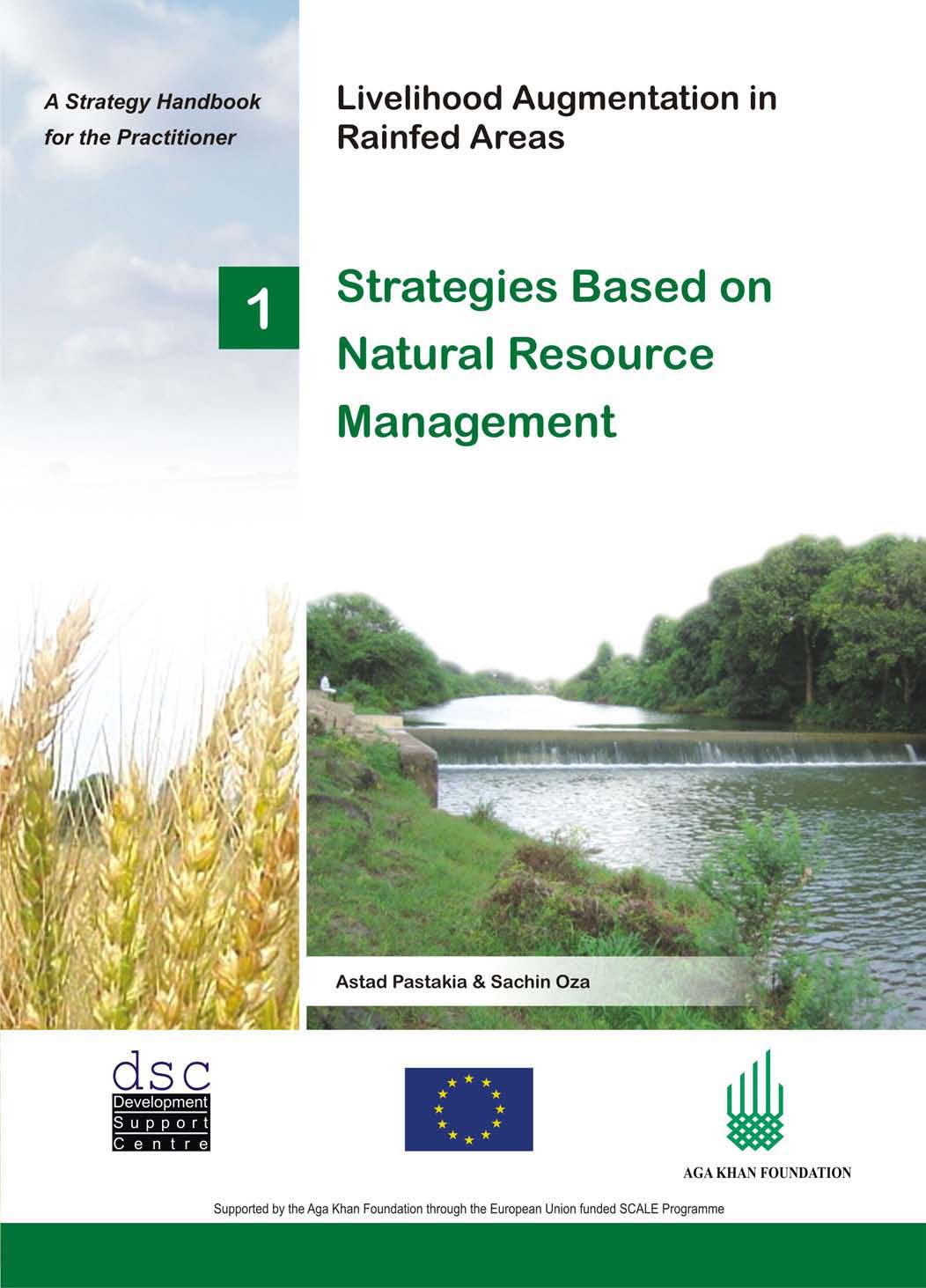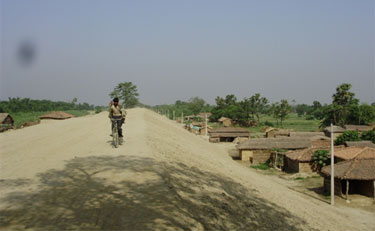/topics/society-culture-religion-and-history
Society, Culture, Religion and History
Forget Prometheus and remember Bhagiratha: Wrong and right thinking about rivers ' - Shri Ramaswamy Iyer s lecture at School of Environmental Sciences, Jawaharlal Nehru University (June 2011)
Posted on 22 Jun, 2011 09:55 AM“Current economic philosophy exalts consumption and growth. If we are hypnotised by visions of 8% or 10% growth, we are bound to ‘demand’ more and more and still more water; and either government engineers or private companies and their engineers will come up with supply-side answers in the form of large projects which will cause even greater distress to the rivers”.
Tehri Dam across Ganga
Source: haridwar.nic.in/ gangaji.htm
I am very grateful to Prof. Sudha Bhattacharya for having invited me to this Seminar. I was not sure whether what I have to say would fit in well with the theme of this Seminar, but she persuaded me to say yes, and so here I am.
Biodiversity, ecology and socioeconomic aspects of the Gundia river basin in the context of the proposed mega hydroelectric power project - A CES technical report
Posted on 21 Jun, 2011 11:23 PMThis report by the Centre for Ecological Sciences, Indian Institute of Science, Bangalore highlights and argues for the the case of saving the Gundia river, one of the most important tributaries of the river Kumaradhara in Hassan district in Karnataka, which is known for its very rich vegetation and biological wealth. This is in the context of the proposal put forward by the Karnataka Power Corporation Limited to implement the Hydroelectric project (GHEP) on the river.
Down the drain – Exploring traditional water systems - A film by Tarun Jayaram
Posted on 21 Jun, 2011 10:41 AM
down the drain from tarun jayaram on Vimeo.
These are some of the questions which led Tarun Jayaram, the film-maker to explore traditional water systems in the country. From the documentary’s opening moments, the director engages us with a beautifully shot array of footages ranging from pilgrims taking a holy dip of Ganges to beautiful baolis and tankas of Rajasthan to the ancient town of Hampi in Karnataka, while establishing how rivers have been an integral part of Indian culture and how its rich tradition of harvesting rainwater needs to be re-established to deal with the present day water crisis. Over the refreshing images and soothing audio, it advocates the need for community participation in rejuvenating the traditional methods of rainwater harvesting.
Water governance guidelines for practitioners - Sahjeevan's experiences in decentralised drinking water management
Posted on 20 Jun, 2011 08:50 PM This report is based on the experience of women’s collectives promoted by Sahjeevan and of several member organizations of Abhiyan on local water governance, in particular on the demonstrated models of decentralized drinking water that they have taken up in several villages.
This report is based on the experience of women’s collectives promoted by Sahjeevan and of several member organizations of Abhiyan on local water governance, in particular on the demonstrated models of decentralized drinking water that they have taken up in several villages.
Water has been the central theme for development in Kutch. In the last two decades, a scaling up process of decentralized drinking water, popularly known as Pani Thiye Panjo, has been initiated in around hundred villages of Abdasa taluka in Kutch district of Gujarat focusing on development of local drinking water sources, their strengthening and building capacities of communities for maintenance and management of the systems to develop drinking water security at the village level.
The concept of Pani Thiye Panjo, has been well accepted as Abdasa model, which besides providing drinking water security, initiated policy dialogues at the local level on issues such as protection of groundwater, pricing mechanism of water (local vis-à-vis external sources), role of Panchayati Raj Institutions in water governance, role of local youth in developing their technical capacities and development of social capital in management of drinking water systems.
Livelihood augmentation in rainfed areas – A strategy handbook for practitioners by Development Support Centre
Posted on 19 Jun, 2011 10:33 AM It is a compilation of ongoing, successful strategies piloted and upscaled by a range of development agencies in different parts of the country. The handbook is presented in four volumes under a common framework and focus on initiatives related to: participatory natural resource management; rural entrepreneurship development; use of information communication technology and institution development.
It is a compilation of ongoing, successful strategies piloted and upscaled by a range of development agencies in different parts of the country. The handbook is presented in four volumes under a common framework and focus on initiatives related to: participatory natural resource management; rural entrepreneurship development; use of information communication technology and institution development.
About 400 million rural poor reside in about 200 poorest districts of the country that constitute rainfed areas. Scientific research has revealed a vast untapped potential in rainfed agriculture where crop yields are lower than their potential by two to five fold. A large number of innovative projects and ideas have been tried to address this issue, although documentation has been uneven and fragmented. Drawing upon such experiences, the handbook points towards new vistas and untapped opportunities in meeting the challenge of enhancing food security with limited water resources and improving the carrying capacities of rainfed areas to match the rapidly increasing populations in these regions and elsewhere.
"Battles over land" - Land as commodity and land for livelihoods - Special issue from Infochange
Posted on 18 Jun, 2011 12:48 AMWhat are the laws governing acquisition? What is the social impact of a development-at-all-costs policy? Can those who owned and lived off the land have a stake in its development?
Screening of 'The Miracle Water Village' and 'The Groundwater Up Project', Kriti Film Club, 20th June, 2011, Gurgaon
Posted on 17 Jun, 2011 04:21 PM
Organizer: Kriti Film Club
Venue: Apparel House, Sector 44, Gurgaon, Haryana
Description:
Kriti Film Club invites you for the screening of two wonderful films that raise awareness on the need for water management and conservation, they are:
Women at the center of climate friendly approaches to agriculture and water use - A report by the Institute for Agriculture and Trade Policy
Posted on 17 Jun, 2011 10:45 AM The Institute for Agriculture and Trade Policy draws on the experiences of the Tamilnadu Women’s Collective (WC), a state-level federation of women’s groups from 1,500 villages, in the context where communities all around the world are struggling to find ways to cope with changes affecting food and water security because of the phenomenon of climate change.
The report argues that many a times, new food and water security policies at the national and international level tend to be narrow, look at each of these issues in isolation and undermine food and water security strategies adopted by individuals and households from marginal groups. Adaptation strategies to address food security focus almost exclusively on increasing agricultural production, while ignoring health and cultural aspects of the food being produced, and the role of agriculture as a means for rural viability.
A three-day workshop on how to leverage new media technologies for advocacy and strategic communication, CSE, 6th – 8th July, 2011, New Delhi
Posted on 16 Jun, 2011 05:36 PMOrganizer: Anil Agarwal Green college, Centre for Science and Environment (CSE)
Venue: Centre for Science and Environment, 41, Tughlakabad Institutional Area, New Delhi
Villages in north Bihar sinking in Bagmati's sand - Entire flood control planning needs thorough review - Article by Dinesh Kumar Mishra in d-sector.org
Posted on 16 Jun, 2011 03:56 PM The Bagmati Embankment separating riverside on the left and countryside of the right near Ibrahimpur – Electric poles suggest the height of the embankment
The Bagmati Embankment separating riverside on the left and countryside of the right near Ibrahimpur – Electric poles suggest the height of the embankment
One often hears about the civilizations buried under earth and attributes various reasons for such disappearance of life from a particular place. Excavations reveal the way of life the people might have had before they chose to leave their villages and towns and allowed the nature to take its own course. These accounts are available in books and we all believe the process told to us by historians and archaeologists. These are all conjectures that are revealed by scientific investigations but how many of us have seen, not read, how the civilizations get buried under the debris created by nature? There are places in Bihar where one can see the process of disappearance of civilization and the villages getting buried under the sediments brought by rivers.





